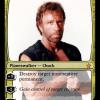Skepticism aside about the hardware, when dealing with a FP experience you are dealing with a personal situation, so I would approach this like writing a song. Sing what you know. Emotions are pretty universal so a personal experience is best exercised by romanticizing the experiences we've had and using artistry to attract people to feelings we've all felt. Once you have them feeling something, challenge them with action that conflicts those feelings. Should be fun enough as long as the player feels a sense of connection to the experience.
If you're going to explore perspectives beyond FP using VR hardware, I think a good starting block is literally exploring gamplay mechanics that depend on the player's physical perspective. Occulus uses a track IR system allowing you to really change the vantage point you are looking at things. Many TP experiences have a fairly locked view to keep the player focused on the action the artists have designed (with a specific perspective in mind). VR using tracking enables the ability to really explore a wide variety of LODs, by creating gameplay that engages the player to narrow their focus and widen it to achieve different controls. VR offers TP gameplay with a unique level of interaction. The subtle lean in that so many RTS players do to micro manage combat could actually expand (change UI) the level of micro and casting controls individual or smaller groups of units can use for example.
Suppose lastly is the simulator end of things. I've often felt these are really just a less fun version of most FP games. I can understand the appeal from an educational and social stand point, however IMO from a game dev stand point VR is really just a gimmicky extension of the experience most players would have just as easily with a good monitor and track IR (if you want to expand on the immersion). I'd prefer a dev building a sim, build a game around the sim mechanics.
Star Citizen is a good example of this. Chris Roberts could have easily created of space simulator given the technical design focus he started with (thruster based flight controls and a demand for high end hardware through an extremely high fidelity and robust control and customization of the art assets) but frankly, that sim would not be very fun. The success of that game will be because it is a game not a simulator. The success of VR when it occurs will be with fun games that demand consumers push hardware forward. Devs building demanding software which consumers love thus pushing hardware manufacturers to be bold and aggressively push the boundaries of what a "PC" experience is. (rant complete)
If you have plans to design for VR, don't hesitate or go looking for an education beyond what you know as game designer. Like designing game mechanics for any peripheral, try and push the boundaries of how a player can use the hardware. The "easy to learn impossible to master" tag line comes to mind. It's easy to use our head/eyes to see what we are doing but its hard to actually use this to change our perspective of "how things are". Think about what it means to be "looking the other way" or what can happen "in the blink of an eye" or how our vantage point of a situation changes our understanding of what is really happening around us and you'll quickly realize just how incredible this tech is in the hands of a dev with even a bit of artistry for fun. Multiple endings might not even need different endings if you play with this technology "right".










